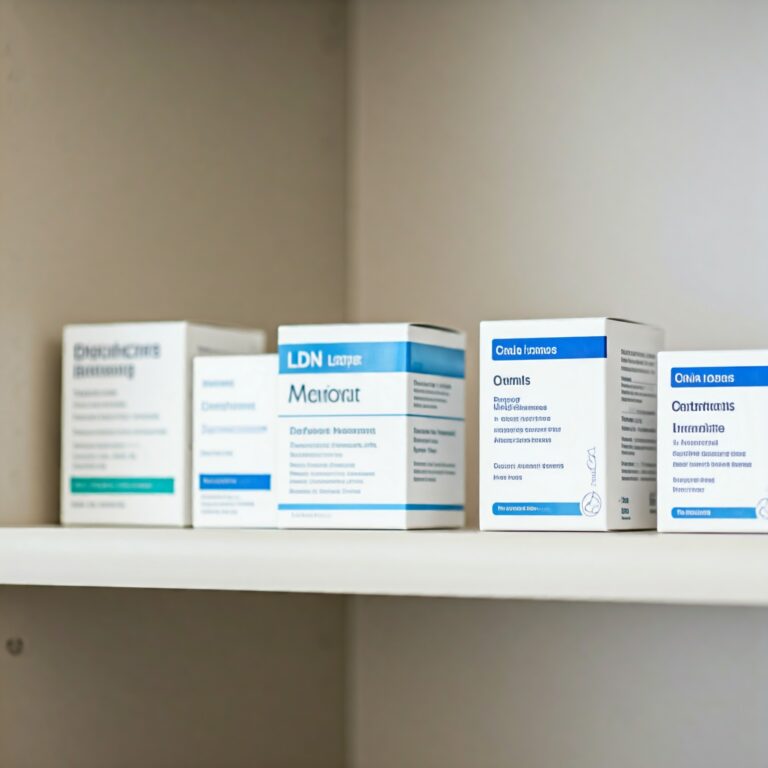Treating Crohn’s disease often means facing tough decisions. Adalimumab could improve my daily life but comes with risks, like immune suppression. In this post, I share my personal journey with Crohn’s treatment, weighing Adalimumab’s pros and cons and how I’m navigating this decision. If you’re exploring similar options or supporting someone with Crohn’s, this story may help. This decision is a key part of my personal journey with Crohn’s treatment, as I strive to balance the potential benefits and risks.
My Personal Journey with Crohn’s Treatment: Initial Concerns
In 2004, after years of misdiagnoses, I was finally diagnosed with Crohn’s disease. While I felt relief, uncertainty soon followed. My journey has included managing symptoms and tough decisions, like considering Adalimumab. A hospitalisation in 2006 due to a reaction to Azathioprine made me cautious of new medications. Recently, though, my healthcare provider suggested Adalimumab as a potential treatment. In this post, I share how I’m weighing Adalimumab’s benefits and risks to find the best path forward.
How the NHS Prepares Patients for Biologics
Undergoing the preliminary blood tests and chest X-ray to prepare for Adalimumab was a standard process. The NHS, as always, provided excellent care. Although I approached these tests with some anxiety, I understood their importance in ensuring my safety and making an informed decision.
As I consider the possibility of starting Adalimumab, I find myself carefully weighing the pros and cons. On one hand, I crave an improved quality of life, free from the constant concerns about what I eat and drink. On the other hand, I can’t overlook the potential side effects and the impact of a lowered immune system. It’s a delicate balance, as I strive to find relief while responsibly managing the associated risks, especially in light of the recent COVID pandemic.
To make an informed decision, I’ve immersed myself in the information provided by the NHS. Reading through the documentation, I sought to understand the potential side effects and risks associated with Adalimumab. While the information is helpful, it’s essential to remember that each person’s experience can vary.
Managing Mild Crohn’s Symptoms: Why Treatment Still Matters
Living with mild Crohn’s disease, my daily life is generally manageable. Although occasional pain and trips to the toilet interrupt my routine, they don’t significantly impact my overall quality of life. I consider myself fortunate in this regard, which further complicates the decision-making process.
Finding Support in My Journey with Crohn’s Treatment
Talking to my IBD nurse gave me valuable insights and reassurance. While their guidance is grounded in professional expertise, I know the final decision is mine to make.
Throughout this decision-making journey, I’ve turned to friends and loved ones for support. Their perspectives have helped me gain clarity, reminding me that the decision is ultimately mine to make. It’s comforting to have a network of people who understand and empathise with the challenges I face.
Uncertainty is an inevitable companion in navigating decisions related to chronic illnesses. I’ve come to accept that there are no guarantees or foolproof answers. Embracing this uncertainty as an opportunity for growth, I continue to explore the options before me, searching for a path that aligns with my values and goals.
As I reflect on my current state of mind, I find myself putting off the decision until it becomes absolutely necessary. I am hesitant to disrupt my current equilibrium, but I also understand that reaching a resolution is crucial for long-term health and well-being. When the time comes, I am determined to make a choice that feels right for me, even if it means stepping into the unknown.
Adalimumab for Crohn’s Treatment: Pros and Cons
Living with Crohn’s disease requires navigating a complex web of decisions and weighing the pros and cons of potential treatments. While the recommendation of healthcare professionals holds significance, it is essential to remember that the final decision rests with the individual. Trusting our instincts, seeking support, and embracing uncertainty can guide us toward choices that align with our unique circumstances and aspirations. Remember, you are not alone in this journey, and together, we can find the path that brings us closer to a better quality of life.
Managing Mild Crohn’s and Exploring New Treatment Options
In addition, I want to emphasise that at this point, I haven’t made a final decision regarding starting Adalimumab. I am still carefully weighing the pros and cons, considering the impact on my quality of life and the potential side effects. I believe it’s important to be transparent and share that I am currently in the process of making this decision.
Rest assured, as I progress through this journey and gain more insights, I will continue to share my experiences and thoughts in subsequent blog posts. I understand the value of providing updates and further reflections on this decision, as it may be helpful for others who are facing similar choices.
Thank you for joining me on this personal journey with Crohn’s disease. Your support and understanding mean a great deal, and I look forward to sharing more with you as my story unfolds. Together, we can navigate the challenges and uncertainties that come with chronic illness, supporting one another on the path towards improved health and well-being. Stay tuned for future updates and reflections on this important decision.
Remember, if you have any questions, insights, or personal experiences you’d like to share, please feel free to do so in the comments section. Your input is highly appreciated and can provide a valuable perspective for both me and others who may be going through a similar journey.
Thank you for following my personal journey with Crohn’s treatment. Your support means so much. I’ll continue to share updates and reflections as I navigate this decision. Let’s support each other in the challenges of living with chronic illness and work toward better health together.





